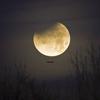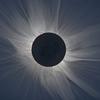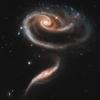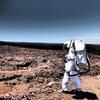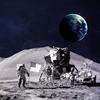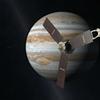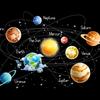Jason Kendall appears in the following:
All You Need To Know About Today's Lunar Lunacy
Wednesday, January 31, 2018
Today, space fans are experiencing a cosmic trifecta: A blue moon, a supermoon, and a total lunar eclipse.
A Total Solar Eclipse
Monday, August 21, 2017
For the first time in 99 years, a total solar eclipse will wash across the continental United States.
New Research Has Scientists Rethinking the Cosmos
Thursday, February 23, 2017
This week, scientists announced two major discoveries that have the potential to drastically alter modern understandings of the cosmos.
Obama Wants to Go Full JFK on Mars. Here's How We'd Do It.
Wednesday, October 12, 2016
Sending humans to Mars may no longer be a fantasy relegated to big budget blockbusters.
From Mining to Space Travel, Lunar Exploration Companies Think Big
Tuesday, August 23, 2016
On this day 50 years ago, Earthlings saw the first picture of their home planet from the moon. Now, humans are looking back to the moon — this time for commercial reasons.
NASA's Juno Spacecraft Gets A Close Up Look at Jupiter
Tuesday, July 05, 2016
It's taken Juno 5 years to get to Jupiter. What will it discover?
Bad News, Stargazers: The Night Sky is Disappearing Before Our Eyes
Friday, June 17, 2016
About 80 percent of Americans can no longer see the stars in the Milky Way because of light pollution. What happens to our connection to the cosmos when the stars are no longer visible?
Stargazers Hope to Spot Mercury in Transit
Monday, May 09, 2016
Stargazers across the country are gathering to watch Mercury appear as a small black dot as it moves between the Earth and the Sun — the first time its made the march since 2006.
An Amateur's Guide to Viewing the Night Sky
Thursday, January 21, 2016
For the first time in more than a decade, Mercury, Venus, Mars, Saturn, and Jupiter are all visible at the same time. We've enlisted an expert to help us locate objects in the night sky.
